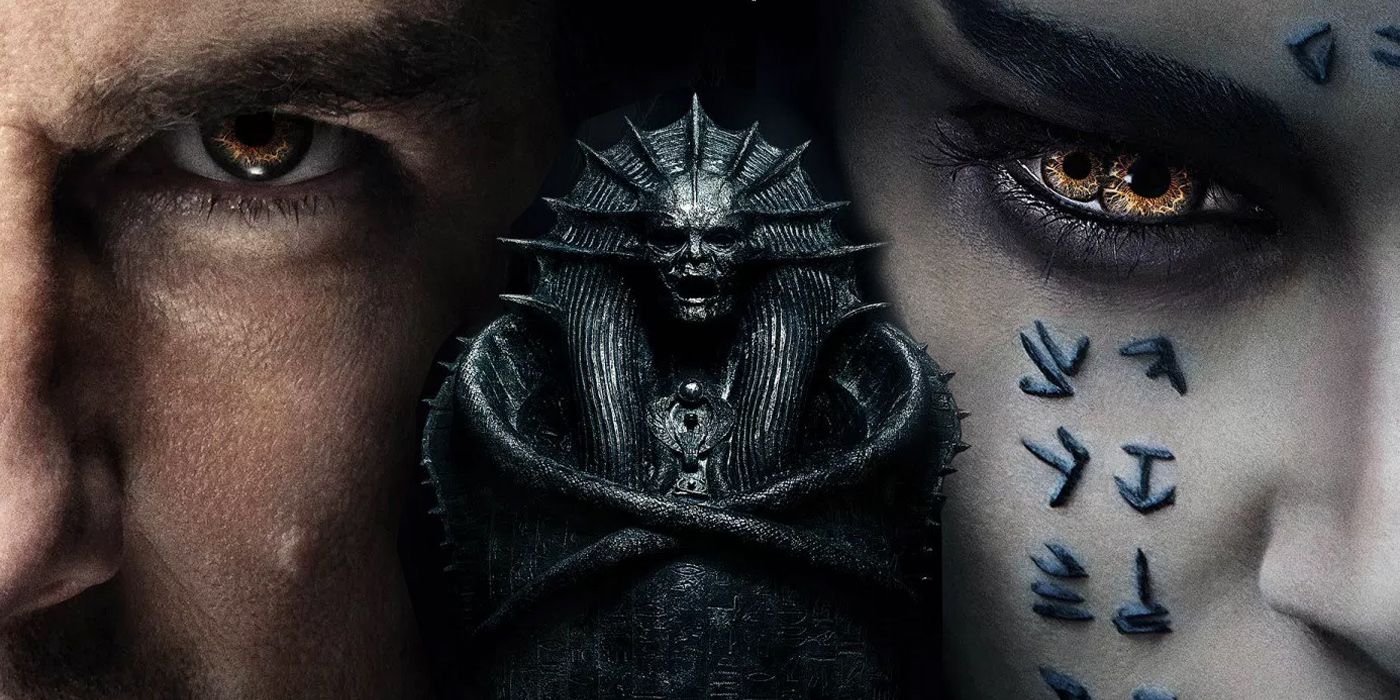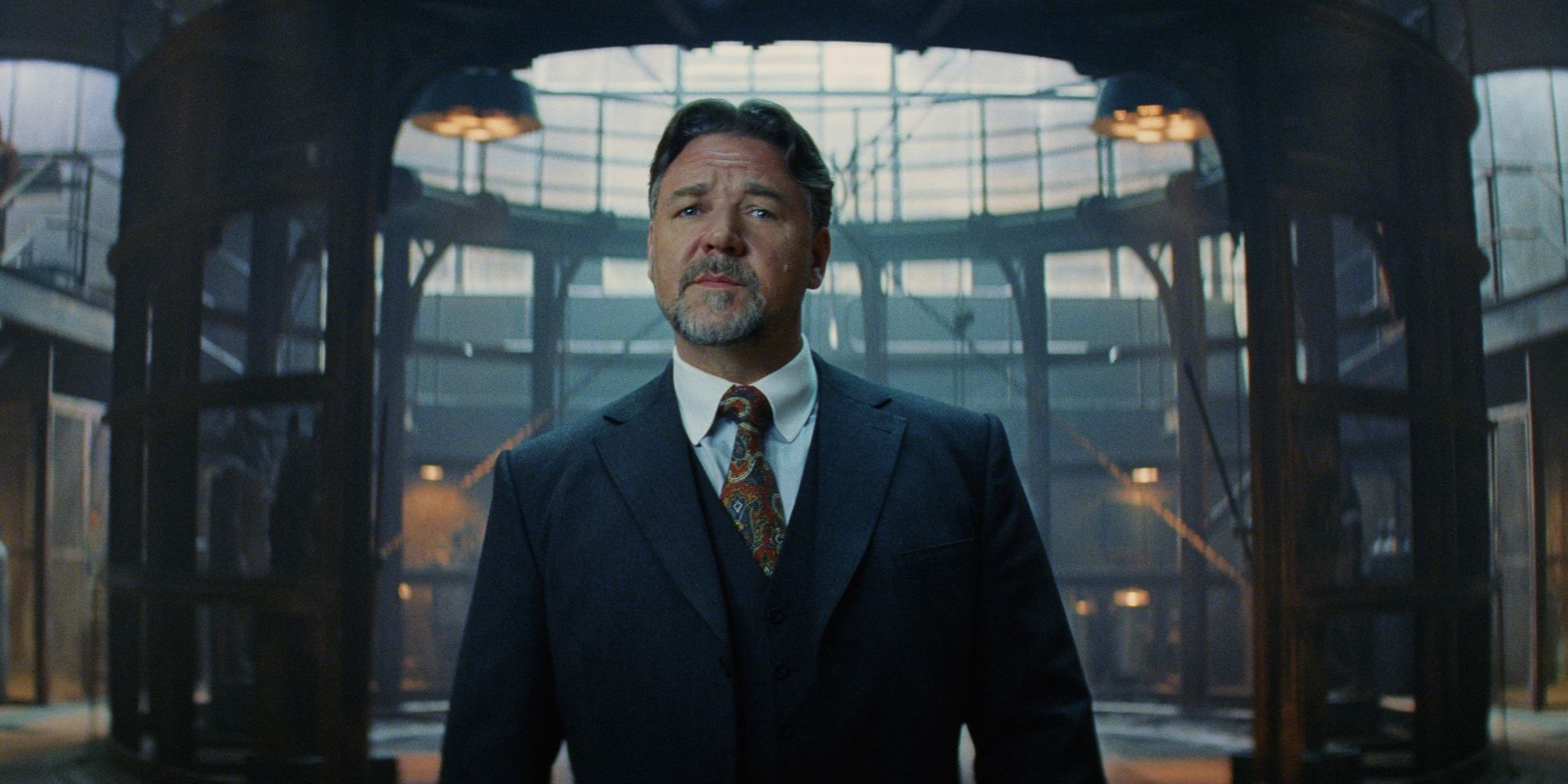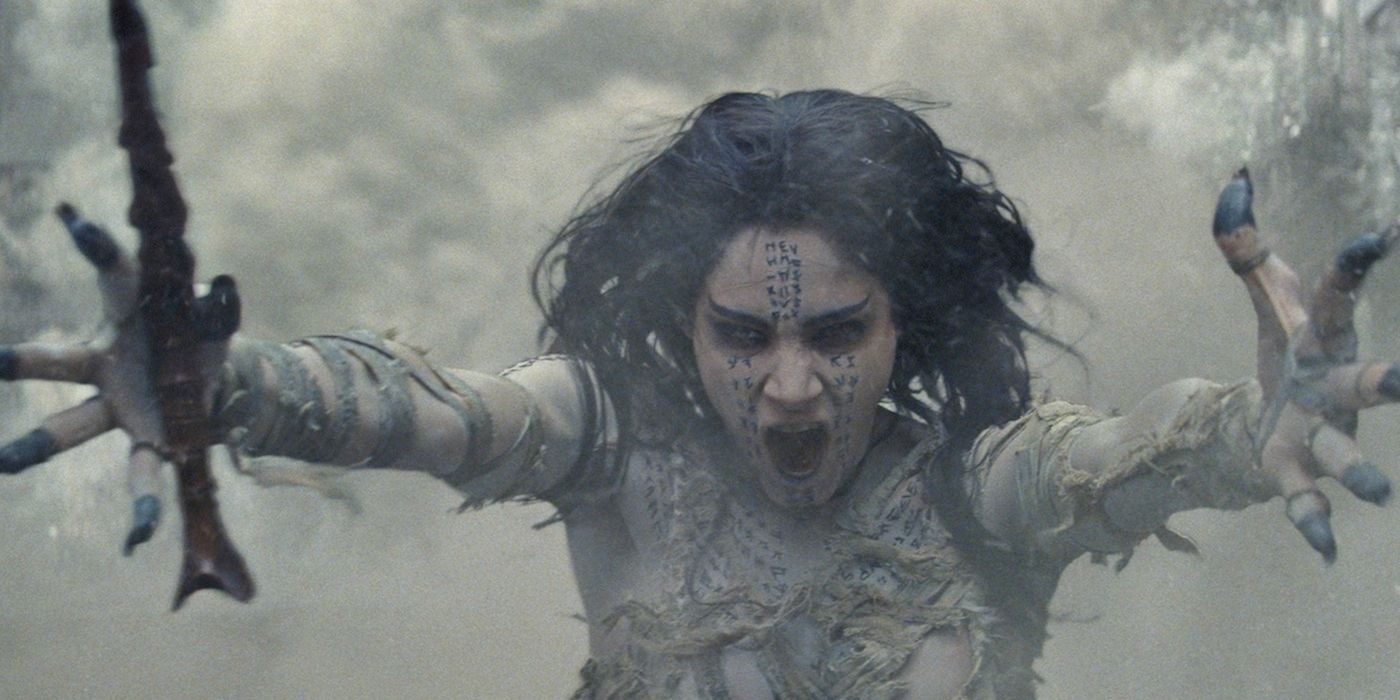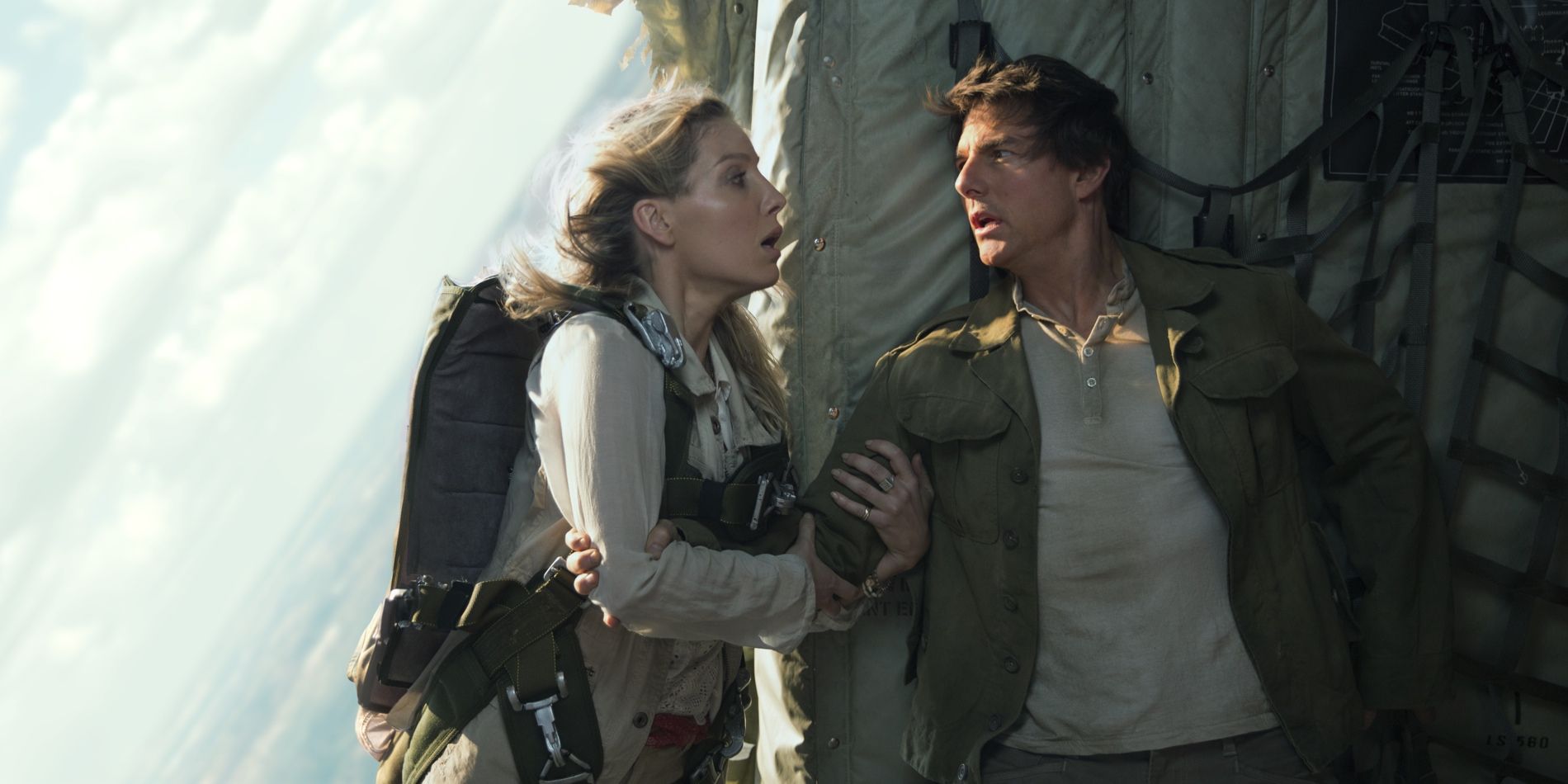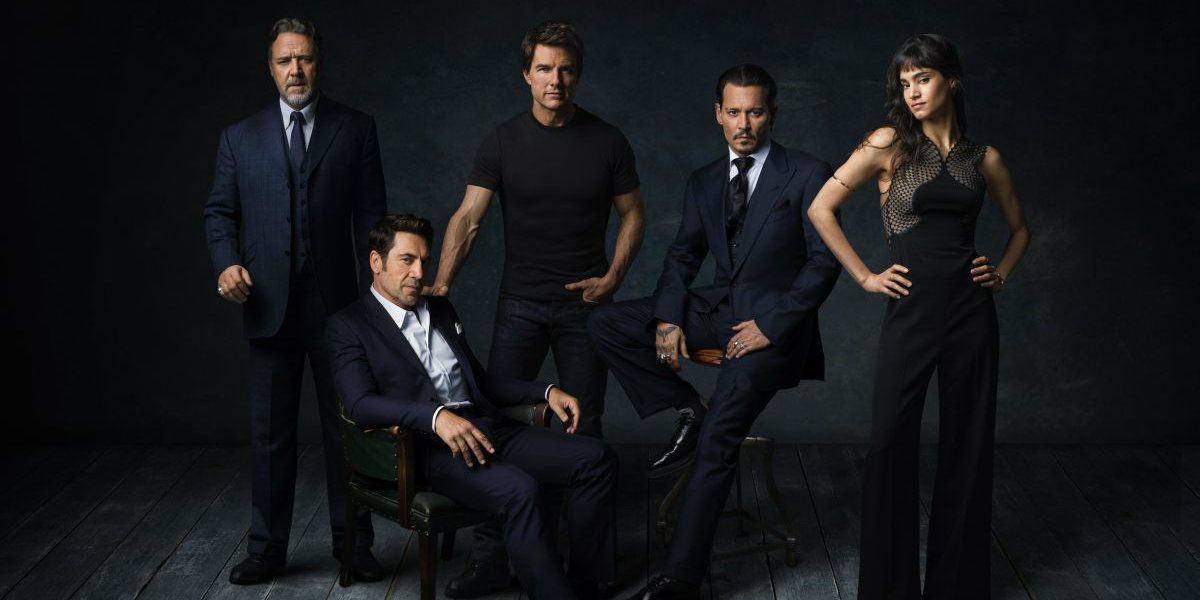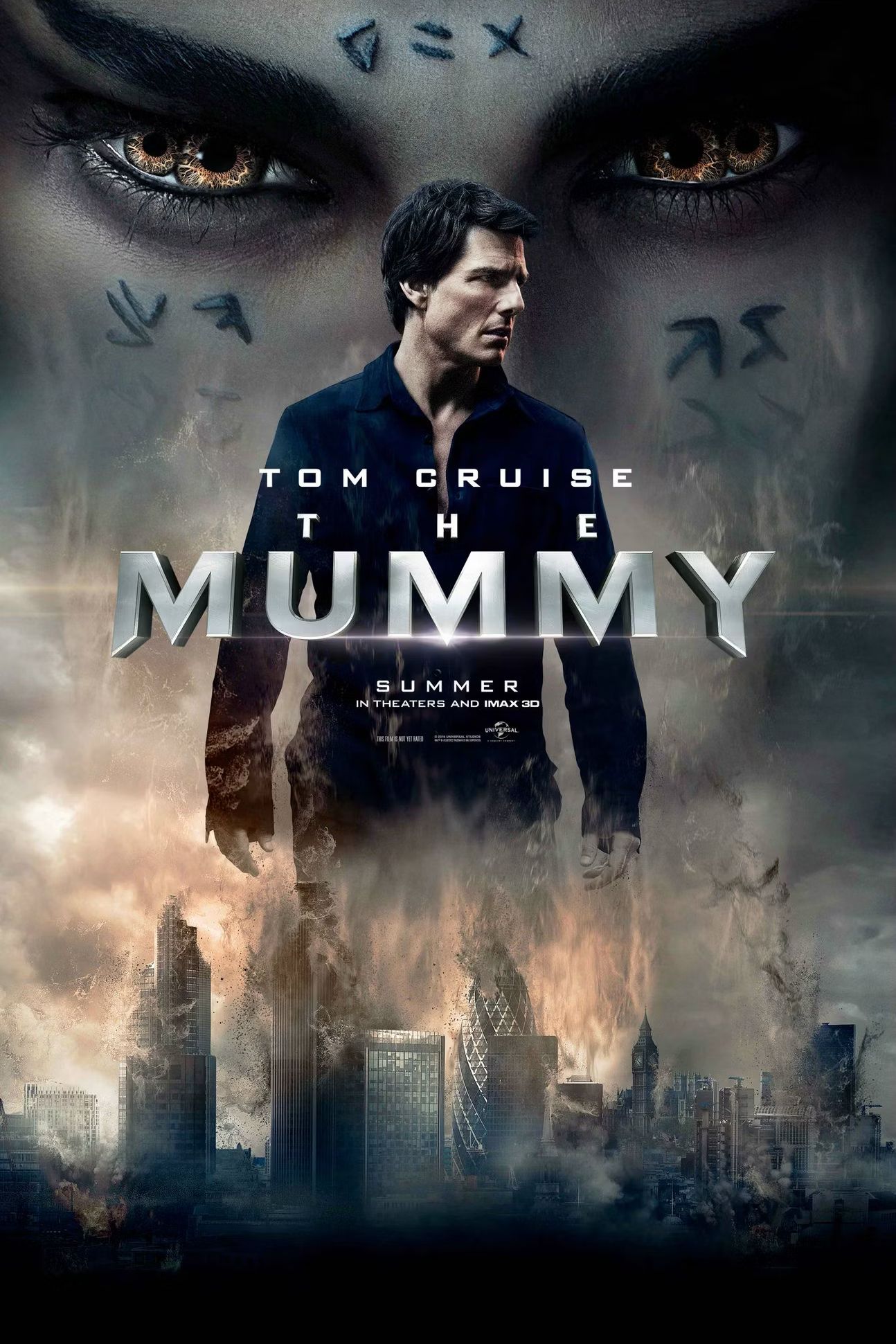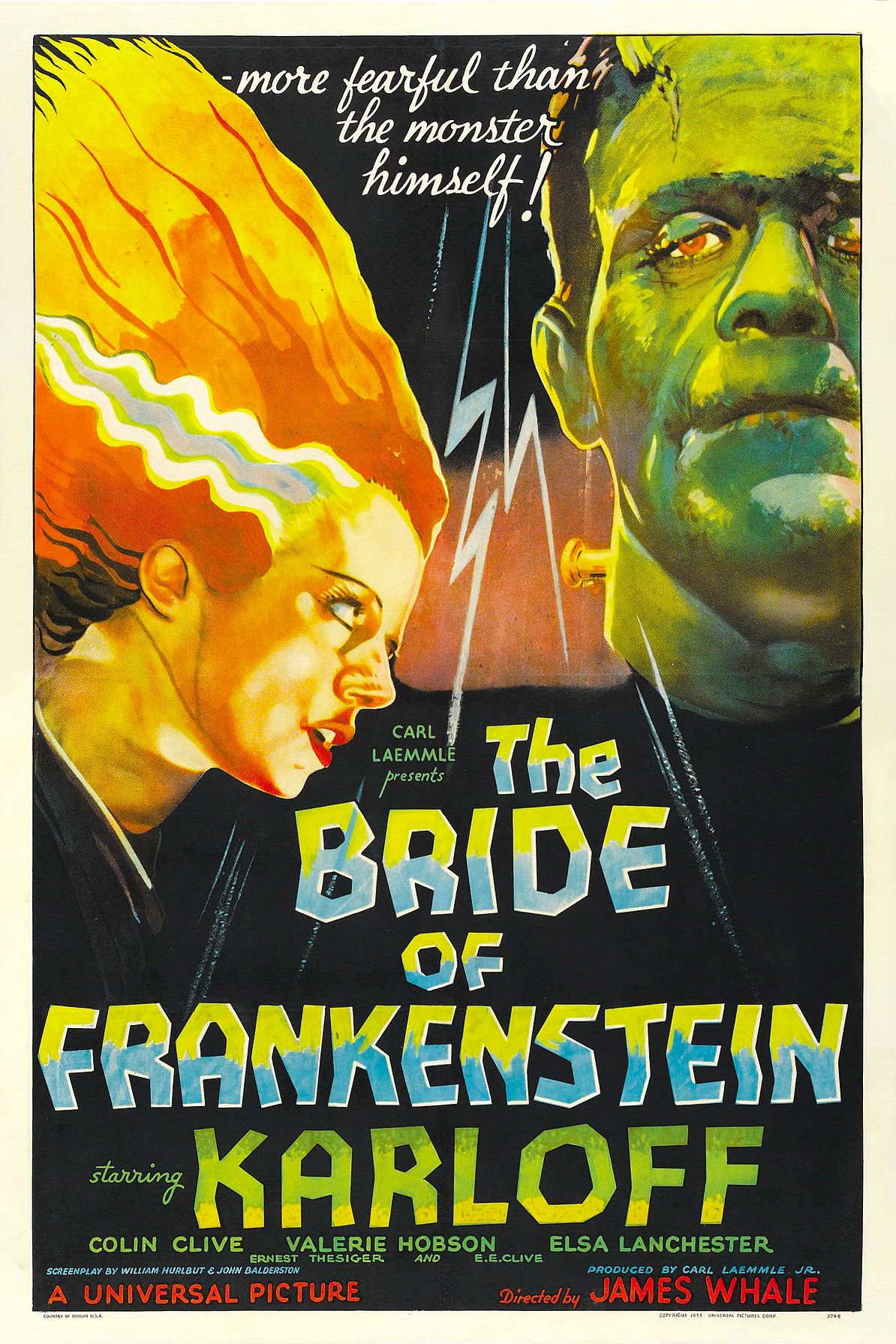The multiplexes are full of movies trying to kick-start a new shared universe to rival the success of the Marvel Cinematic Universe ($10 billion at the worldwide box office in a decade and counting), but none have quite fumbled it like The Mummy. In fact, its conception, development, release and expansion into the proposed Dark Universe are pretty much a "how not to" guide when it comes to this sort of franchise.
Taking obvious inspiration from the unstoppable success of the MCU, we've seen a rise of attempted mega-franchises in recent years: chiefly, the DC Extended Universe, Sony's non-Spider-Man SpiderVerse, the MonsterVerse (which is building to Godzilla vs. Kong), the Transformers universe, and many fumbled attempts besides. As you can see, most of these are comic book-based, partly because Marvel is a superhero property but also because that medium has crossover continuity between titles engrained into it (the same is also true of Toho's monsters). Universal has no such license (the rights to the superheroes they had have reverted back to Marvel in some form) so instead decided to turn to another avenue: monsters.
In the 1930s, the studio's name was basically made by classics like Dracula, Frankenstein, The Wolf Man et al, and over time they began to cross-pollinate with each other, making a sort of proto-shared universe. Now, Universal's been really smart in recent years. They resurrected Jurassic Park, turned Fast and Furious into a behemoth and through Blumhouse are making some of the best horror movies around. And there is a sound logic to taking Universal Monsters, as it was known, as inspiration - it's something inherently befitting of multiple movies. But they've done it so, so wrong.
The Marketing Is All About Set Up
What a lot of tentpole releases intended as franchise-starters (shared universe or otherwise) miss is that the best way to cultivate excitement for sequels, spinoffs et al is simply to make a good first movie. So many try desperately to provide narrative setup for more adventures, missing that in obsessing about the future they don't deliver an experience audiences want to come back for. Indeed, Iron Man, the film that started this whole genre, is a mostly standalone adventure - the only explicit establishment of the future is Rhodey's "next time baby" aside and the Avengers-teasing post-credits scene - and both Man of Steel (DCEU) and Godzilla (MonsterVerse) were made before any future plans were laid out. Prove yourself, then expand. This is why The Amazing Spider-Man 2 floundered to the point Sony decided to share the character rights with Marvel and had to stall their Venom plans.
The Mummy feels more like a feature-length premiere for a TV show akin to Once Upon A Time uniting a bunch of iconic creatures rather than its own film - we have, essentially, Tom Cruise getting on a baseline ahead of more fun adventures (all part of an open ending), and also a bunch of random setup centered around Russell Crowe's Dr. Jekyll, the S.H.I.E.L.D.-lite Prodigium and his obvious dark secret. The Mummy herself is a secondary concern, with her big action sequences - London swarmed by sand - tacked on.
This should hardly be a surprise. From very early on the advertising was focused on Prodigium, with Jekyll made much more interesting than Cruise's vomit comet plane crash and unexpected resurrection, and as we've gone on that's only increased, with Dracula easter eggs and featurettes highlighting the legacy and future the film slots into. This peaked when the studio suddenly announced the series' name and confirmed the hiring of Johnny Depp as the Invisible Man and Javier Bardem as Frankenstein's monster a couple of weeks before release; some would take that as confidence in the film, but seeing as it came in the wake of middling box office predictions it seems more likely that they were hoping to bolster interest with the promise of more.
The Dark Universe is a false economy. "Come see The Mummy because you want to see Bride of Frankenstein." It presumes franchise interest is a major reason for audience investment - something Marvel didn't really take advantage of until Guardians of the Galaxy, their tenth outing - and presents the ideology that more planned movies is somehow better. Although perhaps they were only reacting to what was a pretty poor film in the first place.
Next Page: [valnet-url-page page=2 paginated=0 text='Why%20The%20Mummy%20Was%20The%20Wrong%20First%20Movie']
The Mummy Is A Boring Monster
The Mummy 2017 isn't the first time we've been here. Universal already tried to start a monster Avengers with Dracula Untold, a reimagining of Vlad the Impaler's blood-sucking origins that was (through reshoots) made into a launch pad to a shared universe. However, it was a box office dud and poorly received, so has since been stricken from the Dark Universe canon. But the studio weren't going to let their roster of iconic creatures lie dormant and so they went for another icon. However, with 2009's The Wolfman starring Benicio del Toro and Untold ruling those two monsters out and Mary Shelley's classic being in the public domain leading to I, Frankenstein and Victor Frankenstein sullying the reanimated creature's name recognition, there was no real option beyond The Mummy.
Now, The Mummy is a strange prospect as a franchise. On the one hand, it's managed to heavily influence how we view ancient Egyptian pharaohs but at the same time it's the blandest of the main monster set. The 1932 original wasn't based on any explicit literature like Dracula and Frankenstein and so, aside from a chilling performance from Boris Karloff as Imhotep, isn't all that memorable; it never got a sequel, rather a stealth remake in the form of The Mummy's Hand in 1940, but even that and its follow-ups failed to match its contemporaries.
The only time it became remarkable was the 1999 remake, which ditched much of the horror and instead went for an Indiana Jones-style period adventure. The well-remembered Brendan Fraser film (and its lesser sequels) made The Mummy the most recognizable of the Universal Monsters, giving the character its single tangible, enduring image: the giant, screaming face in a sandstorm. In fact, that series' development leads directly to the reboot; Universal had been trying to make a fourth film until 2012, and after that was officially scrapped they immediately moved into what became the Cruise version.
The project was likely originally conceived to follow Untold, but now that's bypassed is taking the brunt itself, which isn't a strong foot forward; ignoring remaking a series whose latest entry was less than ten years ago, the actual Mummy character is rather confused and, dare we say, outdated. It's an idea built on an early 20th Century fascination with Ancient Egypt that has all but disipated, represented in the confusion over the character in popular culture. Imhotep, as presented in 1932 and 1999, is a scheming, fiend who eventually looks human, a far cry from the stumbling, bandaged creature in the public consciousness (that came from Hand and its sequels); he's more Dracula of the Middle East.
The Filmmaking Lacks Personality
Of course, there's nothing wrong with trying to make a movie or franchise out of something minor. Iron Man, after all, was a B-list hero until Robert Downey Jr. signed on the dotted line. The problem with The Mummy is that this unremarkable series has been delivered in such a bland way.
Say what you want about the DCEU or Transformers, but they're distinct pieces of moviemaking, and the same goes for successes Marvel and the MonsterVerse; while the individual films have their own tone, there's an overarching style rulebook creating a cohesive world. If The Mummy's doing that, we're in for one of the most homogenous franchises ever. Alex Kurtzman is a pretty generic screenwriter as is, but when it comes to directing he really doesn't deliver; there's plenty of creative cinematography in his directorial debut, but no purpose to the images or coherence between them. It's a shoddily edited, generic summer blockbuster.
Worse, it's not even distinct to the idea. As previously romised and following on from Mummy '99, this is primarily an action-adventure movie, but oddly the secondary genre feels like comedy not horror. It's an obvious aping of Marvel and continuation of Tom Cruise's go-to attempts at self-deprecation that feels like it's working against a self-proclaimed "Dark" franchise. The best way to make the series stand out would be the play into the horror, but The Mummy only offers up an underserved titular villain defined entirely by her relationship to Cruise's Nick, never threatening in the right way.
It's possible to change things up as we go forward, especially as more capable directors come in, although the thing that led to The Mummy's issue are ingrained in the franchise.
Next Page: [valnet-url-page page=3 paginated=0 text='Why%20Dark%20Universe%20Is%20Fundamentally%20Flawed']
A-Listers in the Age of Icons
Why people go to the cinema is changing. Like how Hollywood used to have actors under contract, it was stars that really drew people into the big, A-pictures. Major names - think your Leonardo DiCaprios, Dwayne Johnsons and Jennifer Lawrences - could open anything. Now, not so much. There are very few if any people whose mere presence in a film guarantees box office success; even Dwayne Johnson's franchise viagra proved ineffective for Baywatch, while fanbases who would have traditionally come out for their heartthrob of choice just don't exist.
The whole thing's the result of diversifying roles - actors are less likely to stick to the same genre - the rise of TV and gaming as competitive mediums, and a general shift in the sort of movies audiences gravitate towards; instead of stars, people turn out for brands - characters and franchises they know. This is what has allowed the MCU to thrive and made shared universes viable in the first place, and is conversely why you can have the likes of Robert Downey, Jr., Chris Evans and Chris Hemsworth together shoulder the biggest franchise in history yet struggle to have their non-spandex outings turn a profit. The A-list celebrity will always exist, but their time as a box office guarantee is ending. Cinema's not a world of stars anymore, it's not even an age of actors - this is the age of icons.
Yet what's Universal leading with in its Dark Universe? Why, A-listers. On paper this is a franchise inherently built on the instantly recognizable monsters at its core; there's as much inherent recognizability with Vlad and Frank as there is with Bruce and Tony. Yet so much of their angling is about the caliber of its stars' name recognition; that massive Dark Universe announcement officially brought Depp and Bardem into a series alongside Cruise and Crowe, while Kurtzman has talked about bringing in the likes of Michael Fassbender, Jennifer Lawrence, Charlize Theron, and Angelina Jolie on board for uncast characters. It's clear that the goal is to sell the series off the actors.
It's an archaic logic as we've already established, but is amplified by the A-listers they've gone for are those who were a pull at least fifteen years ago; Tom Cruise, Russell Crowe and Johnny Depp are the sort of names that an out of touch studio executive uses as an example of a type, not who you'd want to front a 2017 tentpole. That's not a slight against those actors' talents (well, maybe Depp given how one-note he's been in the 2010s) but that they aren't going to make modern audiences come out like a definitive take on an icon would. As for the others, take Fassbender; he's an incredible actor but beyond X-Men hasn't really fronted a big movie (he's not been able to make the Alien prequel series fly).
The Dark Universe feels like it was conceived a decade ago, and this idea of using A-listers in the age of icons is the epitome of that. It makes for big headlines when announcements are made and cultivates intrigue when the projects are far out, but does little to actually draw audiences in or indicate a level of quality (rather, they've just spent a lot of money on it).
-
From its instigating film's critical savaging and poor domestic box office, it's clear that the Dark Universe is off to a bad start. But Universal didn't help themselves, with poor choices working against conventional modern blockbuster filmmaking made at every step. It's definitely possible for them to turn it around, especially given the legacy Bride of Frankenstein has and the early hype around it, but it may be too late: after The Mummy, who actually wants more?

